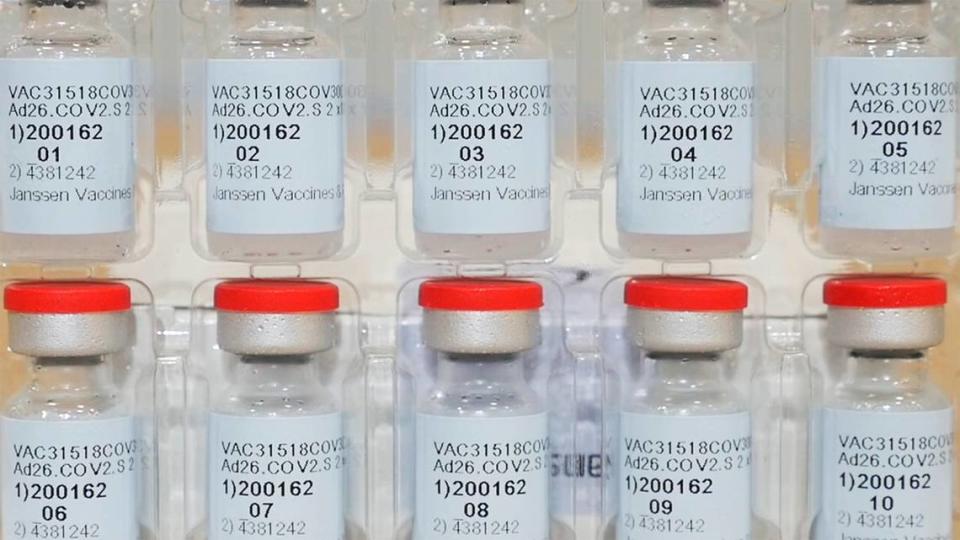NC officials call Johnson & Johnson COVID vaccine a game-changer. When can you get it?
State and local health officials are deciding where to send the new one-shot COVID-19 vaccine developed by Johnson & Johnson, now that it has received emergency use authorization from the federal government.
Whether it will go to vaccinate teachers or build up vaccine supply in doctor’s offices, North Carolina health leaders say the vaccine — now the third in use in the United States — comes at a critical moment of the coronavirus pandemic.
“The Johnson & Johnson vaccine is going to change everything. It’s going to help us end the pandemic,” said Noel Brewer, a UNC-Chapel Hill behavioral scientist, in an interview with The News & Observer. Brewer researches why people take vaccines and advises the N.C. Department of Health and Human Services.
In addition to requiring only one shot, instead of two, the J&J vaccine does not need to be stored at ultra-cold temperatures like the Pfizer-BioNTech vaccine or even in a freezer like the Moderna vaccine. That means it can more easily be used in rural areas.
North Carolina will receive 83,700 doses of the J&J vaccine this week, according to the Centers for Disease Control and Prevention, with shots arriving as early as Tuesday and as late as Thursday.
Wake County’s health department intends to send much of its 5,500-dose allocation to clinics, doctor’s offices and pharmacies who already have been approved to offer the shot. The Durham County Department of Public Health plans to offer a large portion of its 1,400 doses to the county’s educators.
“We think long-term for our community, it will be important that there are hundreds of locations throughout Wake County for individuals to have access to vaccine,” Ryan Jury, Wake County’s vaccination branch director, told The News & Observer.
Game-changing vaccine?
By sending the Johnson & Johnson vaccine to new providers, Wake County will be able to establish some of those locations for people to get their shots. The county plans to start transferring doses to providers on Thursday or Friday. To receive vaccine, a provider must already have been approved by DHHS and have applied with the county to administer it.
Offering a single-dose vaccine “changes the game for us,” Jury said.
The Wake County health department has a total capacity of about 20,000 shots per week, including first and second doses, across its sites at PNC Arena, Sunnybrook Road and the Wake County Commons. A single-dose vaccine means the county doesn’t have to hold appointment slots three or four weeks later for a second dose, and instead can use the time to vaccinate someone else.
Durham’s 1,400-dose allocation will be used to vaccinate the county’s teachers and educational support staff, Alecia Smith, a spokeswoman for the Durham County Department of Public Health, wrote in an email to The News & Observer. Extra doses will be sent to another vaccination site.
The Orange County Health Department is not receiving any doses of the J&J vaccine this week, Todd McGee, a county spokesman, said in an email. When the vaccine is available, McGee wrote, “We will not offer people the chance to choose which vaccine to receive. We encourage people to take whichever vaccine is available.”
‘They’re all very good’
In clinical trials, no one who received the J&J vaccine was hospitalized with COVID-19 or died from COVID complications. The vaccine was shown to be 85% effective at preventing a severe case of the virus.
Some have focused on the clinical trial data that shows the J&J vaccine is 66% percent effective at preventing a moderate to severe case of the illness.
The Pfizer vaccine is 95% effective at preventing symptomatic COVID-19 with the Moderna vaccine 94.1% effective.
But experts say it’s impossible to accurately compare the efficacy rates of the J&J vaccine with the two others in use.
The goal of the COVID-19 vaccination effort is to keep people from developing a severe course of COVID-19 or dying, Brewer said. Trials show that the J&J vaccine is just as effective at that as the Moderna or Pfizer formulas.
“Compared to the really severe outcomes of hospitalizations and death, none of us care all that much that we have a fever and feel a little bit off for a few days,” Brewer said.
Rachel Roper, an East Carolina University virologist, adds that the vaccine trials measured different things.
“The Johnson & Johnson vaccine was tested in South America and South Africa, where those variants are,” Roper told The News & Observer in an interview. “The Moderna and Pfizer (vaccines) weren’t, and they were tested at a time when those variants didn’t exist.”
In other words, Roper said, people should not get hung up on efficacy rates or shop around for a specific kind of vaccine.
“Get the first vaccine you can, as fast as you can,” Roper said. “I think they’re all very good.”
People are more likely to get vaccines that they can easily access, according to Brewer’s research. That makes a single-dose vaccine like Johnson & Johnson’s an important tool against COVID-19 because people only need to make one trip to the vaccination site. It’s durability could allow more communities to hold vaccination clinics.
“Anything we can do to make vaccination easier will increase uptake,” Brewer said.


